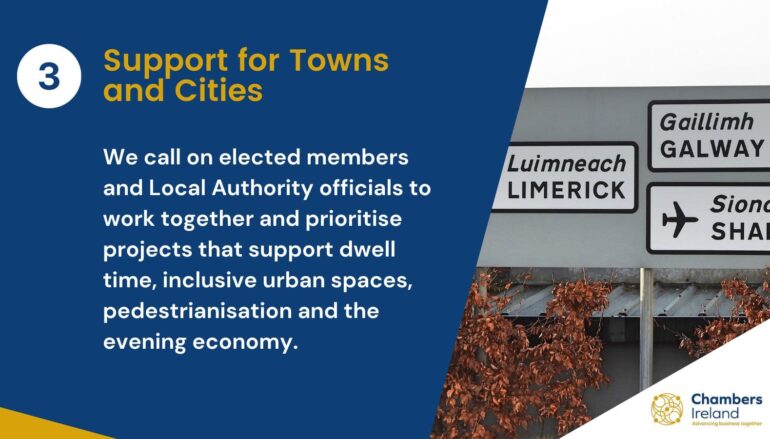

Mature discussion urgently required – Chambers Ireland and the Chambers network calls for certainty on reopening and duration of supports
Ahead of the Cabinet meeting later today, Chambers Ireland this morning (29 April) calls on Government to give certainty on financial supports and the reopening strategy for the months to come.
Speaking this morning, Chambers Ireland Chief Executive Ian Talbot said,
“First and foremost, the priority for our members is that the reopening be sustainable. We must not find ourselves in the same situation as last year where reopening too quickly was followed by a spike in infections and another lockdown. This outcome would be unacceptable to our members.
1. Timelines for a Sustainable Reopening
However, a sustainable reopening must be balanced with a strategy that gives businesses tangible information to work with. This includes targets and realistic timelines. “Businesses that have been closed will need sufficient notice on when they can reopen to facilitate stock replenishment, any required staff recruitment, training provision and necessary adaptations. After a year of sustained crisis, there remains too much ambiguity as to what June, July and August may look like. This needs to change.
2. Sustained Financial Support
Along with clarity on dates, our members urgently need certainty on financial supports. With existing extensions in place until June, vulnerable business must be given certainty on how long wage supports, grant aid, waivers and debt warehousing will be available for.
Being realistic, many businesses will require some degree of financial support for the remainder of this year. It is likely a Supplementary Budget, much like last year’s July Stimulus, will be necessary to give these guarantees. The sooner financial clarity can be given, the sooner vulnerable sectors can plan.
3. Support for Towns and Cities
Finally, we call on Government to prioritise supports for our urban centres. While elements of the vaccine rollout are beyond our control, the reopening of our shared urban space is within our power. While we welcome measures announced to date, including on financial grants and relaxed regulations for outdoor dining, we need significantly more coordination and ambition.
There continues to be too much inconsistency across the country with respect to the pace of activity. This inconsistency will only hurt local economies. We call on elected members and Local Authority officials to work together and prioritise projects that support dwell time, inclusive urban spaces, pedestrianisation and the evening economy. Without this, we risk a two-tier recovery, exacerbating the impact of the pandemic for the places left behind.”








